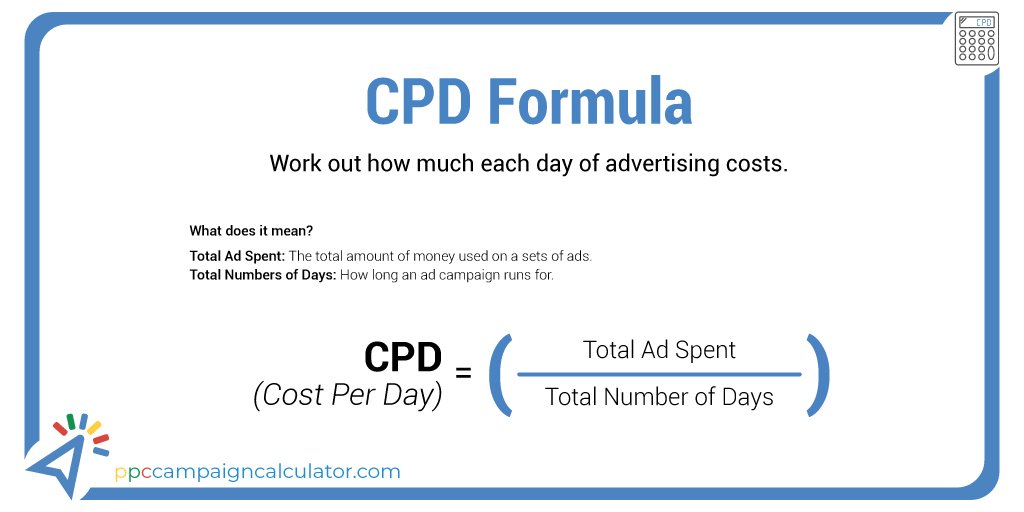Cost Per Days Calculator - (CPD)
We have provided a useful CPD Calculator below to work out your CPD as well as
derive the number of days and cost you would need to get a specific CPD.
Feel free to experiment with different scenarios in order to help you understand this pricing model
better.
CPD Calculator
How to Calculate CPD
The equation for CPD is:

Here's an explanation of each step of the calculation:
- Determine the Total Cost:
Determine the total charge or cost that you want to find out. This could be the overall cost of a specific activity, project, vacation or any other expense. - Determine the Number of Days:
Determine the number of days you want to spend the whole amount on. This could be the duration of a project, the length of a journey or any other important period of time. - Put the Values into the Formula:
Put the values in the formula.
What Does CPD Mean?
A cost-per-day calculator is a tool or formula that calculates the average
cost incurred per day for a specific spending or group of expenses. This calculation is frequently
used for budgeting, financial planning and determining the cost of a particular activity or
lifestyle.
The formula for determining cost per day is as follows:
CPD = Ad Spend ÷ Days
The variables in the formula are as follows:
- Total Cost:
This is the total cost you want to look at. - Number of Days:
This is the number of days you wish to divide the total cost over to determine the average daily cost.
If you spend $500 on a 10-day vacation, the cost per day would be:
Cost per Day = $500 / 10 days = $50 per day
This calculation assists individuals or businesses in understanding and managing their daily expenses as well as making sensible choices based on their financial limits.
Why is cost per day calculator important?
It is important because of the following reasons:
- Budgeting
- Financial Planning:
- Affordability Assessment:
- Project Planning:
- Travel Planning:
- Expense Management:
- Making a decision:
- Emergency Planning:
Limitations:
Users should be aware of the following limitations and considerations when using the
cost-per-day calculation:
- Assumption of Uniform Distribution:
- Excludes Fixed Costs:
- Neglects Spending Quality:
- Short-Term Focus:
- Ignores Seasonal Variations:
- Dependent on Accurate Data:
- Doesn't consider the Time Value of Money: